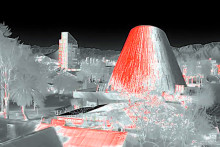How Digital Revenue Models Define Modern Journalism
The rapid digitization of society has profoundly transformed how people access information and interact with their surroundings. Today, news is consumed primarily on digital platforms and in algorithm-mediated environments, where immediacy, constant content circulation, and competition for attention have created an information landscape unrecognizable from that of a decade ago. This shift has facilitated the emergence of new players that respond directly to the logic of the internet and contemporary consumption habits.





